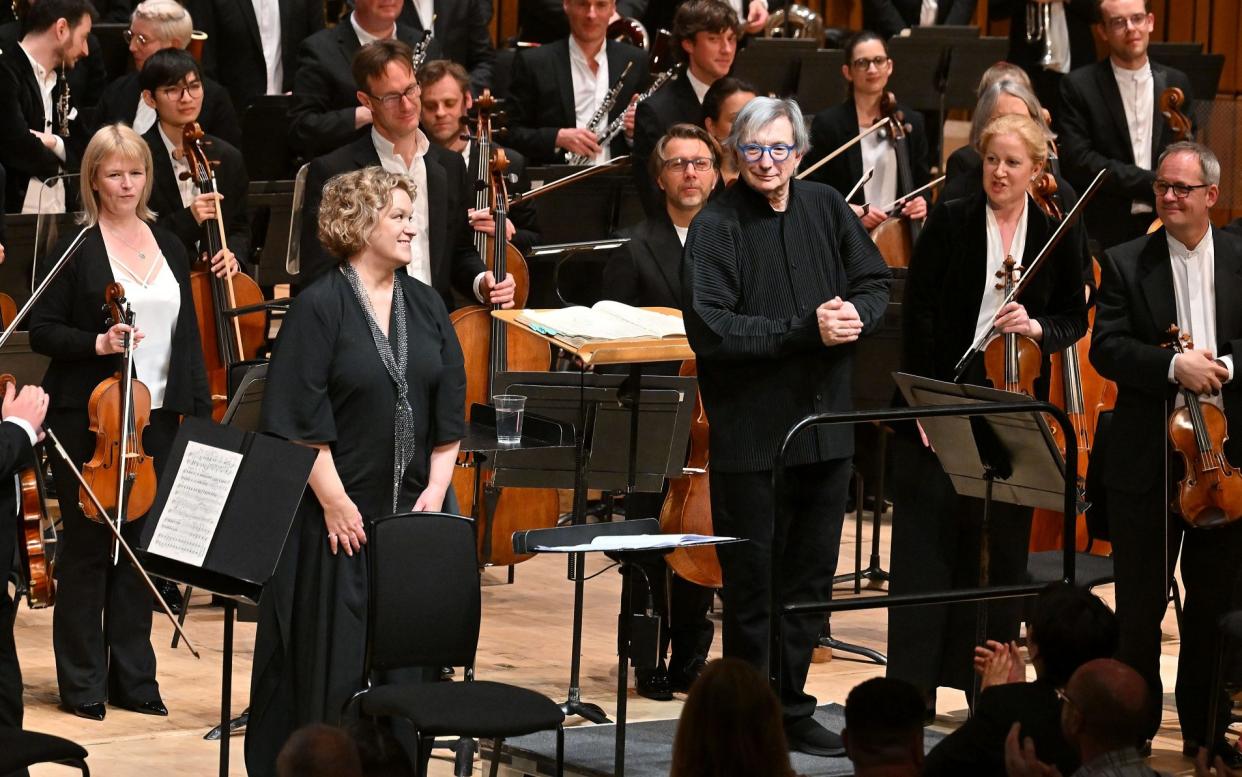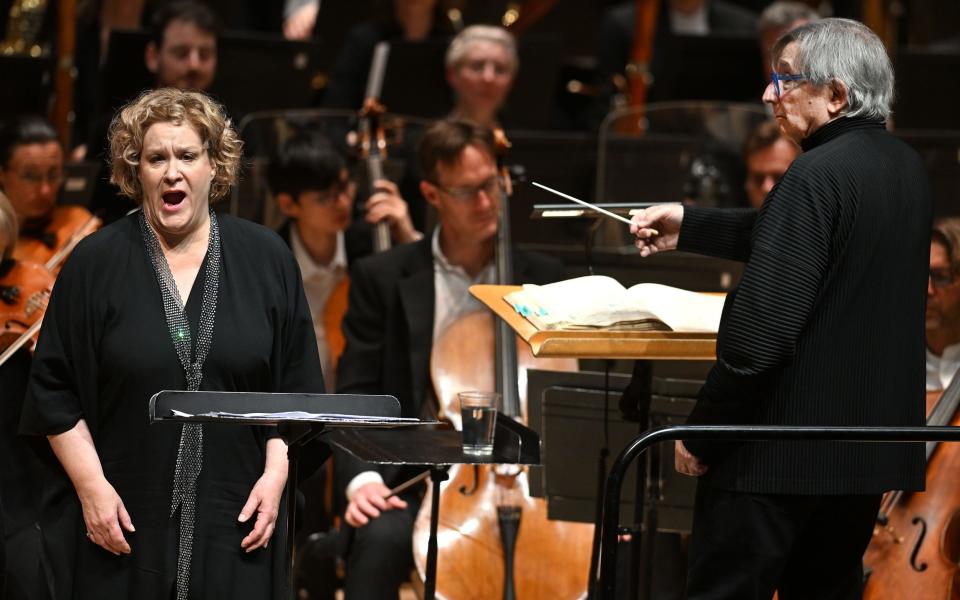Unwell conductor begins to leave before concert’s end, as London Symphony Orchestra rallies round him

- Oops!Something went wrong.Please try again later.
- Oops!Something went wrong.Please try again later.
Sometimes the meaning of a musical performance soars above those purely musical qualities we critics love so much. Because of some unforeseen event it takes on a different, more purely human value. And yet that human quality becomes entwined in some mysterious way with the performance, so we hardly know what it is that’s stirring our feelings so deeply: something human or something musical.
So it was with last night’s concert from the London Symphony Orchestra, when the the great conductor Michael Tilson Thomas, ill and frail, became confused and seemed to about to leave the podium; but the sympathetic superbly professional orchestra gently supported him and the performance through to the end.
The one work in the programme was Gustav Mahler’s Third Symphony. It is excessive in every way: madly long and cast in six movements, it romps through every kind of human experience: sinister funeral marches, raucous street parades, elfin dances of almost unbearable sweetness, Fiddler on the Roof-style squawkings. And at the centre is Nietzsche’s hymn to the human longing for eternity.
To hold all this together is a hugely taxing thing for any conductor, but especially so for Tilson Thomas, the American conductor who’s been a much-loved member of the LSO family for almost 40 years. He’s been suffering from a brain cancer for some years, and as he came onstage he seemed a frail but also endearingly eccentric figure, chatting to players as he made his slow way to the podium. He’s as lean and perfectly tailored as ever, with a delight in elegantly precise gestures that seem strangely inapt for Mahler, where rapturously expansive expressivity is the norm.
But as this unusually spacious, almost two-hour long performance revealed, those taut gestures can release a torrent of expressivity. The LSO played their hearts out for “MTT”, both collectively and individually. Isobel Daws’ trombone in the funeral march first movement seemed weighed down with sorrow, while Benjamin Gilmour’s exquisite violin gave a dusting of sweetness to the fairytale dream of the second movement.

After the squawking third movement came mezzo-soprano Alice Coote’s magnificent rendition of Nietzsche’s verses. If there is any singer alive who can summon the starry-sky immensity of that movement with more authority, I’ve yet to hear her. It was a jolt, but a pleasing one, to pass from that to the cheerful innocence of the penultimate movement, the Tiffin Boys’ Choir and women of the London Symphony Chorus in fine lusty voice.
Then came the moment that will make this performance stay in everyone’s minds for ever. Tilson Thomas picked up his score and began to leave the podium, telling the audience cheerily they’d been listening to an extended warm-up. It took the kindly exhortations from everyone near him, Coote included, to bring him to the realization he needed to grant us the radiant benediction of the final movement. We were all on tenterhooks, but eventually he began, with all his usual unsentimental, firm authority. One felt behind him the orchestra both following and yet somehow leading, with a tact that was worth more than any feat of virtuosity.
As the final chord died away everyone realized they’d witnessed a kind of triumph from that frail figure on the podium which was every bit as deep as the one in Mahler’s music, and they all rose to their feet to salute it.
Another performance of Mahler’s Third Symphony from the LSO and Michael Tilson Thomas is planned for Thursday.

